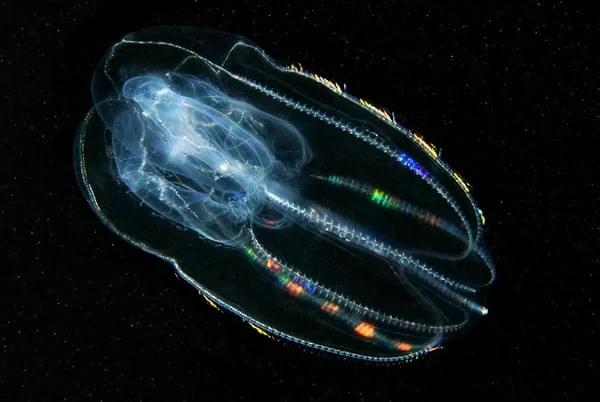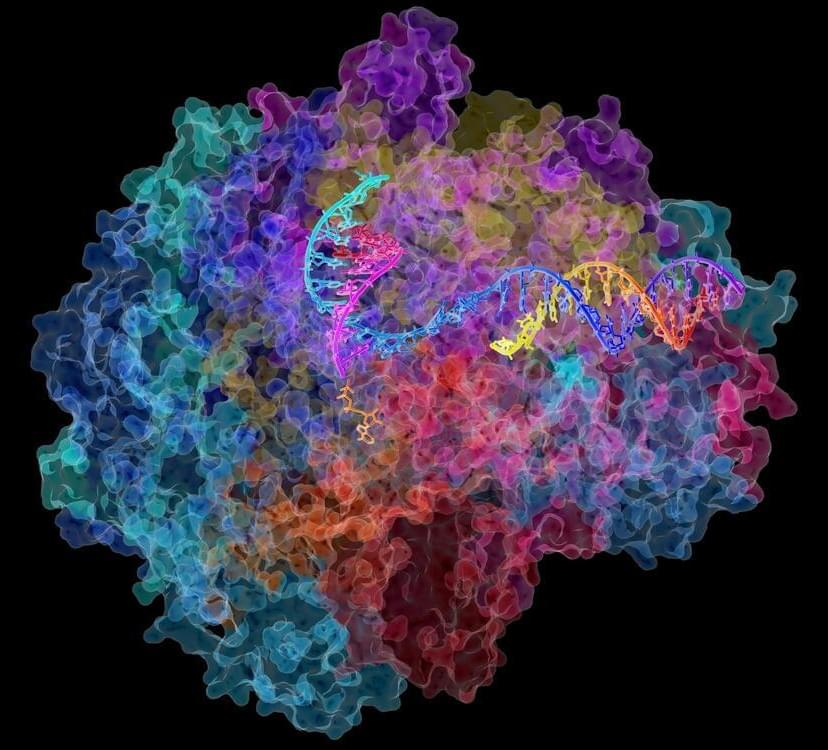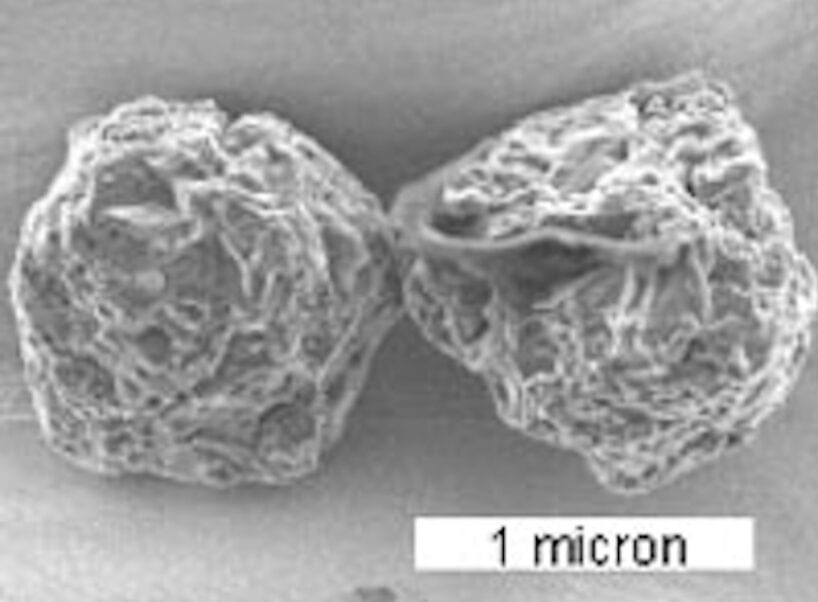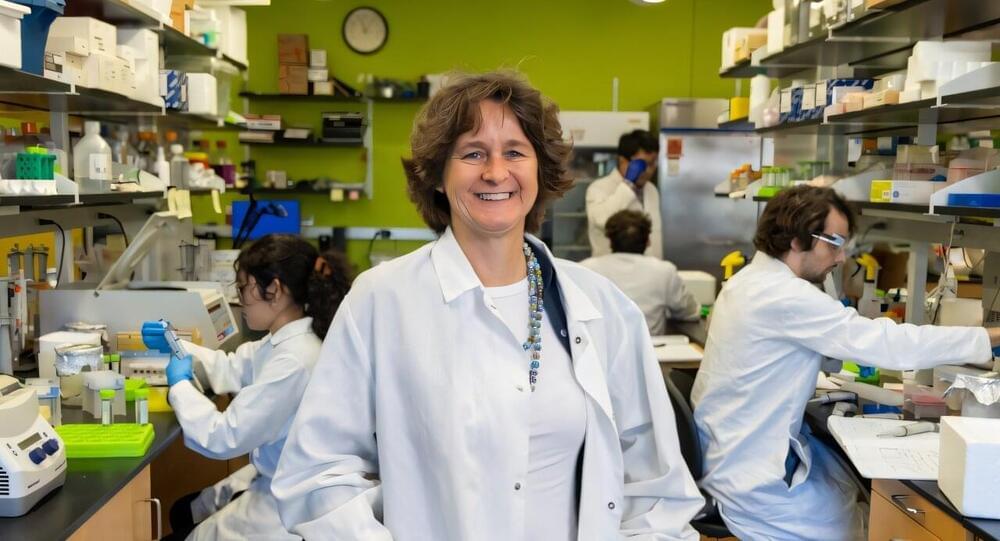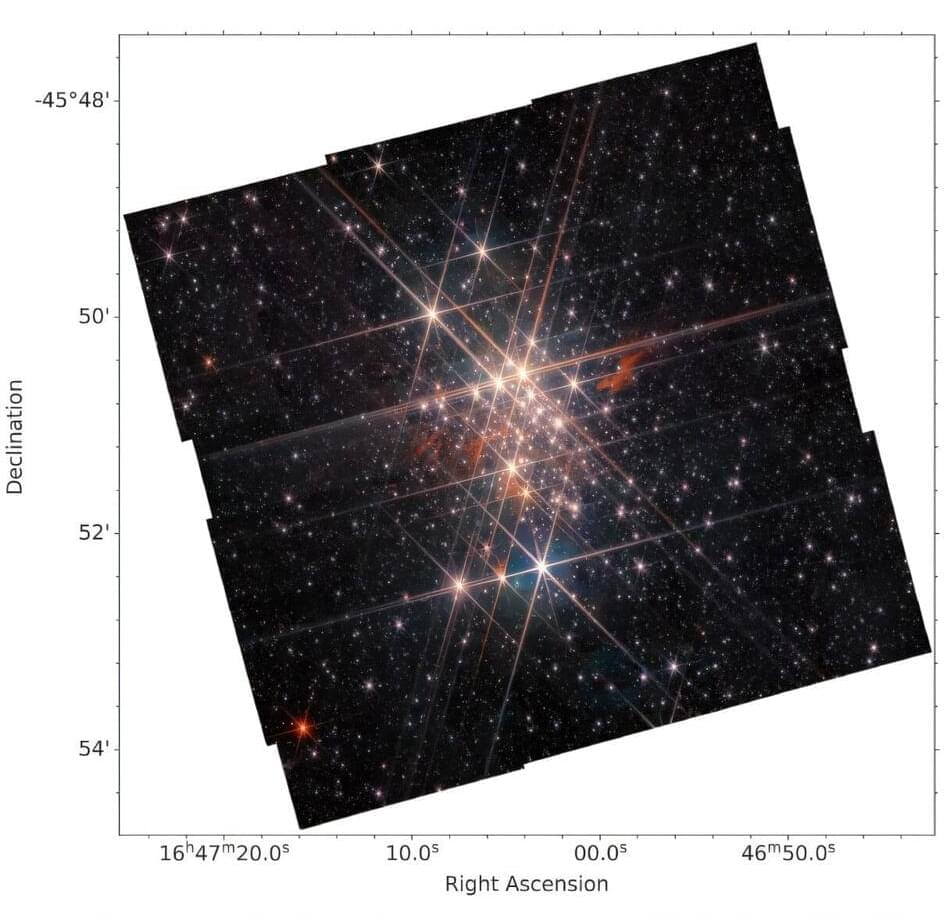
An international team of astronomers has employed the James Webb Space Telescope (JWST) to observe a supermassive Galactic open cluster known as Westerlund 1. Results of the observational campaign, presented in a paper published Nov. 20 on the arXiv preprint server, yield important insights about the structure and properties of this cluster.
Open clusters (OCs), formed from the same giant molecular cloud, are groups of stars loosely gravitationally bound to each other. So far, more than 1,000 of them have been discovered in the Milky Way, and scientists are still looking for more, hoping to find a variety of these stellar groupings. Expanding the list of known galactic open clusters and studying them in detail could be crucial for improving our understanding of the formation and evolution of our galaxy.
It is assumed that most star formation takes place in massive clusters of stars, known as superstar clusters (SSCs). They are very massive young OCs usually containing a very large number of young, massive stars. The total mass of a typical SSC exceeds 10,000 solar masses.


